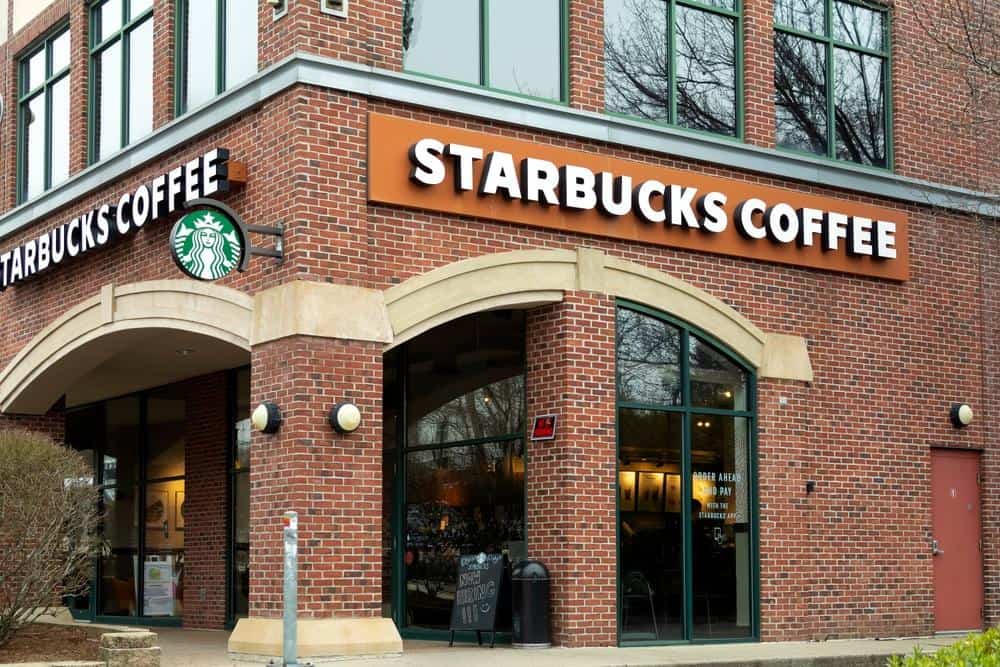
Starbucks, known for its extensive menu of delicious beverages, has made a name for itself as a go-to spot for coffee lovers worldwide. But what if you’re lactose intolerant, vegan, or simply prefer plant-based alternatives to dairy? In this comprehensive guide, we’ll explore the various milk substitutes Starbucks offers, their nutritional content, and how they compare to regular cow’s milk.
Starbucks offers four main milk substitutes: soy milk, almond milk, coconut milk, and oat milk. Each of these non-dairy alternatives can be added to any beverage on the Starbucks menu for an additional cost. They are all gluten-free, dairy-free, lactose-free, vegan, and non-GMO, catering to a variety of dietary needs and preferences.
Starbucks’ Milk Substitutes: An Overview
Starbucks offers a range of milk substitutes for customers who prefer non-dairy options or have specific dietary requirements. These plant-based milks are gluten-free, dairy-free, lactose-free, vegan, and non-GMO. The four main non-dairy milk alternatives offered at Starbucks are:
- Soy milk – A popular choice among customers due to its texture and flavor that’s similar to dairy milk.
- Almond milk – A flavorful option with fewer calories and a less rich texture compared to soy milk.
- Coconut milk – A thick and creamy option that adds a distinct flavor to beverages.
- Oat milk – Known for its creamy texture and mild flavor, it’s a recent favorite among customers.
Each of these milk alternatives can be added to any beverage on the Starbucks menu, allowing customers to customize their drinks according to their preferences and dietary needs.
Tasting the Difference: Milk Substitutes vs. Regular Milk
Each milk substitute at Starbucks has a distinct taste and texture compared to regular milk. Almond milk carries a nutty flavor, while soy milk is slightly sweet with a hint of vanilla. Coconut milk is subtly sweet, and oat milk is creamy and slightly sweet.
The Cost of Choosing a Milk Substitute
While these alternatives offer variety and cater to different dietary needs, they do come with an additional cost. In the United States, Starbucks charges an extra 70¢ for oat, soy, almond, and coconut milk. However, adding a “splash” of any non-dairy milk to beverages like brewed coffee is free of charge.
Nutritional Comparison: Milk Substitutes vs. Regular Milk
When it comes to nutritional content, not all milk substitutes are created equal. Almond milk contains the least calories per cup and is the richest in calcium among the milk substitutes. Soy milk, on the other hand, has a similar protein content to cow’s milk. Oat milk is lower in protein but is fortified with similar sodium, calcium, B12, and vitamin D content compared to cow’s milk. Coconut milk tends to have fewer calories and less fat compared to cow’s milk.
Dairy-Free Options and Limitations at Starbucks
While Starbucks offers a wide range of dairy-free milk alternatives, certain ingredients and add-ons contain dairy and cannot be substituted. These include whipped cream, eggnog, caramel sauce, caramel drizzle, pumpkin spice sauce, white mocha sauce, caramel brulée sauce, and Starbucks’ specific brand of Java Chips.
Popular Starbucks Drinks with Milk Substitutes
Some popular Starbucks drink orders that commonly use milk substitutes include the Apple Crisp Oatmilk Macchiato, Honey Almondmilk Flat White, Coconut Milk Latte, and Iced Brown Sugar Oatmilk Shaken Espresso.
Starbucks’ Approach to Dietary Restrictions
Starbucks caters to customers with dietary restrictions, such as lactose intolerance or veganism, by offering a variety of milk substitute options. By providing these options, Starbucks allows customers with dietary restrictions to enjoy their beverages without compromising their dietary needs.
The Health Benefits of Choosing a Milk Substitute
Choosing a milk substitute at Starbucks can offer several health benefits. Plant-based milks are often lower in fat and calories compared to cow’s milk. They can also be fortified with vitamins and minerals, such as calcium, vitamin D, and vitamin B12, which are normally found in cow’s milk.
In conclusion, Starbucks offers a variety of milk substitutes to cater to different dietary needs and preferences. Whether you’re lactose intolerant, vegan, or simply prefer the taste of plant-based milks, there’s a milk substitute at Starbucks for you.
Frequently Asked Questions
What is the best non-dairy milk to use for a Starbucks latte?
The best non-dairy milk for a Starbucks latte largely depends on personal preference. If you enjoy a creamy texture and mild flavor, oat milk would be a great choice. For a hint of nuttiness, almond milk might suit you best.
Are the non-dairy milks at Starbucks sweetened or unsweetened?
Starbucks uses both sweetened and unsweetened non-dairy milks. The almond and coconut milk options are slightly sweetened, while the soy and oat milk are typically unsweetened.
Does Starbucks offer any other non-dairy milk options besides almond, soy, coconut, and oat milk?
As of now, Starbucks mainly offers almond, soy, coconut, and oat milk as their non-dairy alternatives. However, they may introduce new options in the future based on customer demand and market trends.
Can I use non-dairy milk in all Starbucks beverages?
Yes, you can substitute non-dairy milk in any Starbucks beverage, allowing you to customize your drink according to your dietary needs and taste preferences.
Does Starbucks charge extra for using non-dairy milk in Frappuccinos?
Yes, Starbucks does charge an extra 70¢ for substituting non-dairy milk in all beverages, including Frappuccinos.












